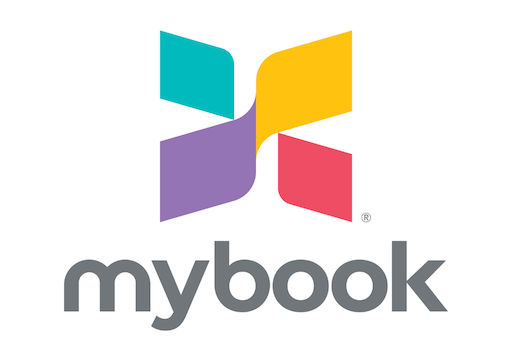
Tell Digital Marketing Requirements as Client: Essential Guide
When considering a digital marketing strategy, the phrase “tell digital marketing requirements as client” often comes to mind. As a client, articulating your needs can significantly streamline the process with an agency, ensuring that your vision is effectively realized. To navigate this landscape successfully, it’s essential to understand how to communicate your expectations clearly and concisely.
Understanding Your Business Goals
Before even speaking with a digital marketing agency, take a moment to reflect on your business goals. What do you want to achieve? Whether it’s increasing brand awareness, boosting website traffic, or generating leads, specifying these goals will help the agency align its efforts with your vision.
For instance, let’s say you run a local bakery, and your goal is to increase foot traffic by 30% in the next six months. By communicating this specific objective, you can work together with the agency to tailor campaigns that will resonate with the local community, perhaps by utilizing geo-targeted ads or social media promotions highlighting seasonal treats.
Identifying Your Target Audience
The next step in telling your digital marketing requirements is identifying your target audience. Who do you want to reach? Understanding your audience’s demographics, behaviors, and preferences is crucial. This is where a well-defined buyer persona can be invaluable.
Picture this: you own a sustainable clothing brand. Your target audience may consist of environmentally-conscious millennials interested in fashion. By informing your agency about the values and interests of your consumers, they can create campaigns that speak directly to them. The more information you provide, the better they can tailor their strategies.
Establishing a Budget
Now that you’ve set goals and identified your target audience, you’ll need to consider your budget. Digital marketing can range from affordable social media campaigns to high-end SEO services. Being upfront about how much you’re willing to spend helps the agency craft a plan that fits within your financial parameters.
For instance, if your budget is limited, the agency might suggest a focus on organic search strategies over paid advertising. Or perhaps they’ll prioritize social media engagement, where you can connect organically with customers without breaking the bank.
Choosing the Right Channels
In today’s multifaceted digital world, there are countless channels through which you can market your business. Do you prefer social media, email marketing, search engine optimization, or a combination? Understanding which platforms resonate most with your target audience is another crucial aspect.
Maybe you have a vibrant visual component to your brand, making platforms like Instagram and Pinterest particularly effective. Or perhaps you’re B2B, leaning toward LinkedIn for professional outreach. By specifying your preferred channels, you empower your agency to focus on what will yield the best results.
Setting Key Performance Indicators (KPIs)
What does success look like for you? Establishing clear KPIs offers measurable goals that can demonstrate the effectiveness of your marketing efforts. This could include metrics like conversion rates, social media engagement, website traffic, and more.
For example, if you initially set a goal of increasing your email subscription rate by 20%, the agency can monitor this metric and make necessary adjustments along the way. This collaborative feedback fosters a relationship based on transparency and mutual understanding.
Maintaining Open Communication
Finally, one of the most integral parts of defining your digital marketing requirements is the importance of ongoing communication. A successful collaboration relies on both parties being on the same page. Regular check-ins, updates, and feedback sessions can help keep everyone aligned.
Imagine you’ve launched a campaign and noticed it’s not performing as expected. If you communicate that to your agency, they can pivot quickly, ensuring that you’re both working toward the same goals, adapting in real-time based on what the data reveals.
Final Insights
In the complex realm of digital marketing, clarity is power. By effectively communicating your requirements, you can help bridge the gap between your business vision and the strategies implemented by your agency. Reflect upon your business goals, target audience, budget, preferred channels, and KPIs, and don’t underestimate the value of open communication. This collaborative approach can lead to tremendously successful outcomes tailored uniquely to your objectives.
—
FAQs
1. How can I determine my budget for digital marketing?
Start by evaluating your overall marketing budget. Consider how much you can allocate after covering other expenses. Research industry standards for various services to get an idea of costs, and remember that digital marketing often requires ongoing investment rather than a one-time payment.
2. What should I include when defining my target audience?
Be as detailed as possible. Include demographic information such as age, gender, income level, and education, as well as psychographics like interests, values, and buying behaviors. This level of detail helps tailor marketing strategies to meet their specific needs.
3. How can I measure the success of digital marketing efforts?
Establish clear KPIs at the outset, such as conversion rates, engagement metrics, and traffic sources. Use analytics tools to track these metrics and adjust your strategy based on the data collected over time. Regular progress checks with your agency will also keep everyone informed.
Related Posts
Switch Lead Gen Expert: Effortless Steps for Success
In todays competitive landscape, becoming a switch lead gen expert can transform your approach to business growth. With a focus on building relationships and understanding your audience, youll discover...
Tell Digital Marketing Requirements: Essential Client Guide
Navigating the world of digital marketing can seem overwhelming, but learning how to tell digital marketing requirements as a client makes all the difference. This guide will empower you to clearly...












